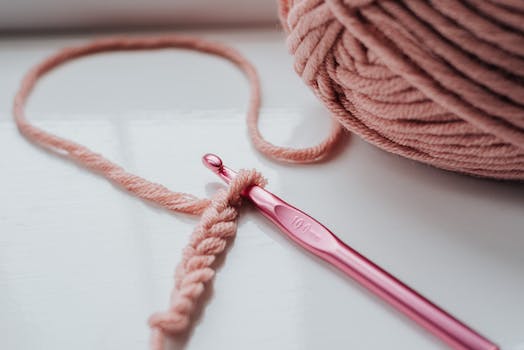How To Start A Business As A Woman
“Empowering women to turn their dreams into reality through entrepreneurship.”
Introduction
Starting a business as a woman can be an exciting and empowering experience. However, it can also be challenging and require a lot of hard work and dedication. In this article, we will provide some tips and advice on how to start a business as a woman, including identifying your niche, creating a business plan, securing funding, and building a support network.
Finding Your Niche: Identifying Your Strengths and Passions
Starting a business as a woman can be a daunting task, but it can also be incredibly rewarding. One of the first steps in starting a business is identifying your niche. This means finding a specific area of expertise or interest that you can focus on and build your business around. In this article, we will discuss how to identify your strengths and passions to help you find your niche.
The first step in identifying your strengths and passions is to take a personal inventory. This means taking a close look at your skills, experiences, and interests. Ask yourself questions like, “What am I good at?” and “What do I enjoy doing?” Make a list of your strengths and passions, and then narrow it down to the ones that you feel are the most important.
Once you have identified your strengths and passions, it’s time to do some research. Look at the market and see if there is a need for your skills or interests. Are there other businesses that are already offering similar products or services? If so, how can you differentiate yourself from the competition? This is where your unique strengths and passions can come in handy.
Another important factor to consider when identifying your niche is your target audience. Who are you trying to reach with your business? What are their needs and desires? Understanding your target audience can help you tailor your products or services to meet their specific needs.
It’s also important to consider the financial viability of your niche. Will there be enough demand for your products or services to sustain a profitable business? How much will it cost to start and run your business? These are all important questions to ask yourself before committing to a particular niche.
Once you have identified your niche, it’s time to start building your business. This may involve creating a business plan, securing funding, and developing a marketing strategy. It’s important to stay focused and committed to your niche, even when faced with challenges or setbacks.
In conclusion, identifying your strengths and passions is a crucial step in starting a business as a woman. By taking a personal inventory, doing research, understanding your target audience, and considering the financial viability of your niche, you can find a specific area of expertise or interest to build your business around. Remember to stay focused and committed to your niche, and don’t be afraid to seek out help and support along the way. With hard work and determination, you can turn your passion into a successful business.
Creating a Business Plan: Mapping Out Your Goals and Strategies

Starting a business can be a daunting task, especially for women who may face unique challenges in the business world. However, with the right mindset and a solid plan, anyone can turn their entrepreneurial dreams into a reality. One of the first steps in starting a business is creating a business plan. This plan will serve as a roadmap for your business, outlining your goals and strategies for success.
The first step in creating a business plan is to identify your target market. Who are your ideal customers? What are their needs and wants? Conducting market research can help you answer these questions and develop a better understanding of your target audience. This information will be crucial in developing your marketing and sales strategies.
Next, you’ll need to define your unique selling proposition (USP). What sets your business apart from the competition? What value do you offer that others don’t? Your USP should be clear and concise, and it should be something that resonates with your target market.
Once you’ve identified your target market and USP, it’s time to set your business goals. What do you want to achieve with your business? Your goals should be specific, measurable, achievable, relevant, and time-bound (SMART). For example, you might set a goal to increase your sales by 20% within the next year.
With your goals in mind, you can start developing your strategies for achieving them. This might include developing a marketing plan, creating a sales strategy, and identifying key performance indicators (KPIs) to track your progress. Your strategies should be aligned with your goals and should be designed to help you achieve them.
It’s also important to consider the financial aspects of your business. How much money will you need to start your business? What are your projected expenses and revenues? Creating a financial plan can help you answer these questions and ensure that you have the resources you need to get your business off the ground.
Finally, it’s important to consider the legal and regulatory aspects of starting a business. What licenses and permits will you need? What are the tax implications of starting a business? Consulting with a lawyer or accountant can help you navigate these issues and ensure that you’re in compliance with all applicable laws and regulations.
In conclusion, creating a business plan is an essential step in starting a business as a woman. By identifying your target market, defining your USP, setting SMART goals, developing strategies for achieving them, considering the financial aspects of your business, and addressing legal and regulatory issues, you can create a roadmap for success. Remember, starting a business is a journey, and it’s important to stay flexible and adapt your plan as needed. With hard work, determination, and a solid plan, you can turn your entrepreneurial dreams into a reality.
Securing Funding: Exploring Financing Options for Women Entrepreneurs
Starting a business can be a daunting task, especially for women entrepreneurs who face unique challenges in securing funding. However, with the right resources and knowledge, women can successfully launch and grow their businesses. In this article, we will explore financing options for women entrepreneurs.
One of the first steps in securing funding is to create a solid business plan. This plan should outline your business goals, target market, competition, and financial projections. A well-crafted business plan can help you secure funding from investors, banks, and other financial institutions.
One financing option for women entrepreneurs is to seek out grants. There are many organizations that offer grants specifically for women-owned businesses. These grants can provide funding for start-up costs, marketing, and other business expenses. Some popular grant programs for women entrepreneurs include the Amber Grant, the Eileen Fisher Women-Owned Business Grant, and the Cartier Women’s Initiative Awards.
Another financing option is to seek out loans from banks or other financial institutions. Women entrepreneurs can apply for traditional business loans, SBA loans, or microloans. SBA loans are backed by the Small Business Administration and offer lower interest rates and longer repayment terms than traditional loans. Microloans are small loans that are typically used for start-up costs or to purchase equipment. These loans are often easier to obtain than traditional loans and can be a great option for women entrepreneurs who are just starting out.
Crowdfunding is another financing option that has become increasingly popular in recent years. Crowdfunding allows entrepreneurs to raise money from a large number of people through online platforms such as Kickstarter or Indiegogo. This can be a great option for women entrepreneurs who have a unique product or service that they want to bring to market.
Finally, women entrepreneurs can seek out angel investors or venture capitalists. Angel investors are typically wealthy individuals who invest in start-up companies in exchange for equity. Venture capitalists are professional investors who provide funding to start-up companies in exchange for equity. While these options can be more difficult to obtain, they can provide significant funding and resources to help grow your business.
In conclusion, securing funding is a crucial step in starting and growing a successful business. Women entrepreneurs face unique challenges in securing funding, but there are many financing options available. By creating a solid business plan and exploring different financing options, women entrepreneurs can successfully launch and grow their businesses.
Building Your Brand: Establishing Your Identity and Marketing Your Business
Starting a business as a woman can be a daunting task, but it can also be incredibly rewarding. One of the most important aspects of building a successful business is establishing your brand identity and effectively marketing your business. In this article, we will discuss some tips and strategies for building your brand and marketing your business as a woman entrepreneur.
First and foremost, it is important to define your brand identity. Your brand is more than just a logo or a tagline – it is the essence of your business. It is what sets you apart from your competitors and communicates your values and mission to your customers. To establish your brand identity, you need to consider your target audience, your unique selling proposition, and your brand personality.
Your target audience is the group of people who are most likely to buy your products or services. You need to understand their needs, wants, and pain points in order to create a brand that resonates with them. Your unique selling proposition is what makes your business different from others in your industry. It could be your product quality, your customer service, or your pricing strategy. Your brand personality is the set of human characteristics that you want your brand to embody. Are you fun and playful, or serious and professional? Your brand personality should be consistent across all of your marketing materials, from your website to your social media profiles.
Once you have established your brand identity, it is time to start marketing your business. There are many different marketing channels that you can use to reach your target audience, including social media, email marketing, content marketing, and paid advertising. The key is to choose the channels that are most effective for your business and to create a consistent message across all of them.
Social media is a powerful tool for building your brand and engaging with your customers. You can use platforms like Facebook, Instagram, and Twitter to share your brand story, showcase your products or services, and connect with your audience. It is important to create a social media strategy that aligns with your brand identity and to post regularly to keep your followers engaged.
Email marketing is another effective way to reach your target audience. You can use email to promote your products or services, share valuable content, and build relationships with your subscribers. It is important to segment your email list based on your subscribers’ interests and preferences and to personalize your emails to make them more engaging.
Content marketing is a strategy that involves creating valuable content that educates, entertains, or inspires your target audience. You can use blog posts, videos, infographics, and other types of content to establish your brand as a thought leader in your industry and to attract new customers to your business.
Paid advertising is a more traditional marketing channel that can be effective for reaching a wider audience. You can use platforms like Google Ads and Facebook Ads to target specific demographics and interests and to drive traffic to your website or landing pages.
In conclusion, building your brand and marketing your business as a woman entrepreneur requires a combination of creativity, strategy, and persistence. By defining your brand identity, choosing the right marketing channels, and creating a consistent message across all of your marketing materials, you can establish a strong brand that resonates with your target audience and drives business growth.
Networking and Support: Connecting with Other Women Entrepreneurs and Resources
Starting a business as a woman can be a daunting task, but it doesn’t have to be. One of the most important things you can do is to connect with other women entrepreneurs and resources. Networking and support are crucial to the success of any business, and as a woman, it’s important to find a community that understands your unique challenges and can offer guidance and support.
One of the best ways to connect with other women entrepreneurs is through networking events. These events are designed to bring together like-minded individuals who are looking to grow their businesses and make valuable connections. Look for events in your area that are specifically geared towards women entrepreneurs, as these will provide the most relevant and helpful connections.
Another great way to connect with other women entrepreneurs is through online communities. There are a number of online groups and forums that are dedicated to supporting women in business. These communities can be a great source of advice, inspiration, and support, and can help you feel less isolated as you navigate the challenges of starting and growing a business.
In addition to networking events and online communities, there are a number of resources available specifically for women entrepreneurs. These resources can include mentorship programs, funding opportunities, and educational resources. Look for organizations in your area that are dedicated to supporting women in business, and take advantage of the resources they offer.
One such organization is the National Association of Women Business Owners (NAWBO). NAWBO is a national organization that provides resources and support to women entrepreneurs across the country. They offer a variety of programs and services, including mentorship, networking events, and educational resources. Joining an organization like NAWBO can be a great way to connect with other women entrepreneurs and gain access to valuable resources and support.
Another resource for women entrepreneurs is the Small Business Administration (SBA). The SBA offers a number of programs and services specifically for women-owned businesses, including funding opportunities and educational resources. They also offer a Women’s Business Center program, which provides training, counseling, and other resources to women entrepreneurs across the country.
In addition to these resources, it’s important to seek out mentorship and guidance from other successful women entrepreneurs. Look for women in your industry who have achieved the kind of success you aspire to, and reach out to them for advice and guidance. Many successful women entrepreneurs are happy to mentor and support other women in business, and can offer valuable insights and advice based on their own experiences.
Starting a business as a woman can be challenging, but it’s also incredibly rewarding. By connecting with other women entrepreneurs and resources, you can gain the support and guidance you need to succeed. Whether you’re attending networking events, joining online communities, or seeking out mentorship and guidance, there are a wealth of resources available to help you achieve your goals and build a successful business. So don’t be afraid to reach out and connect with other women entrepreneurs – you never know where it might lead!
Conclusion
Starting a business as a woman requires determination, hard work, and a solid plan. It is important to research the market, identify a niche, and create a business plan. Networking and seeking mentorship can also be helpful in building a successful business. With dedication and perseverance, women can overcome obstacles and achieve their entrepreneurial goals.






